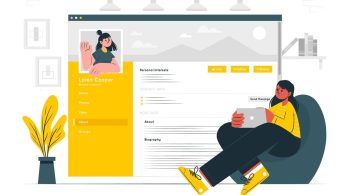The field of economics is not just about understanding market trends and fiscal policies; it’s a versatile foundation for a multitude of exciting career paths.
Whether you’re analyzing complex data, shaping economic policies, or advising top-tier clients, an economics degree offers a gateway to a range of professions that are influential, dynamic, and pivotal in today’s interconnected world.
From the bustling financial districts to the corridors of academia, the skills honed through an economics program are in high demand across various sectors.
In this exploration, we delve into the diverse opportunities that await those armed with an economics degree, highlighting how this educational choice can lead to fulfilling and impactful careers in different spheres.
Exploring Career Paths in Finance and Banking
An economics degree opens doors to a variety of roles in finance and banking, sectors where analytical and quantitative skills are highly valued.
Graduates with a solid understanding of economic principles are well-positioned for roles in investment banking, where they can engage in activities like mergers and acquisitions, initial public offerings (IPOs), and other large financial transactions.
These roles often require the ability to analyze market trends, understand financial statements, and provide insightful recommendations based on economic theories and models.
Retail banking is another area where economics graduates can thrive. Here, one could work as a loan officer, financial advisor, or branch manager, utilizing their knowledge of economics to assess credit risk, advise clients on investment options, and manage financial portfolios.
Additionally, risk management within banks and financial institutions is a field tailor-made for those with an economics background. In these roles, one would assess and manage the risks associated with banking activities, including lending, market, and operational risks.
Leveraging a Degree in Consulting
An online economics degree can be particularly advantageous for those aspiring to a career in consulting. The flexibility and diverse knowledge gained from such a program equip graduates to offer valuable insights into economic consulting roles.
Economic consultants are sought after for their expertise in analyzing economic and financial data, which can help businesses and governments make informed decisions. They might be involved in evaluating market trends, conducting cost-benefit analyses, or assessing the economic impact of policies and regulations.
Consultants with an economics background can help firms understand complex economic landscapes and navigate through various challenges, such as pricing strategies, market-entry, and regulatory compliance.
Their ability to interpret economic indicators and trends allows them to provide strategic advice that can improve business performance or shape effective public policies.
Moreover, the adaptability and self-discipline developed through completing an online degree are qualities highly prized in the consulting industry. These professionals often work in dynamic environments, dealing with a range of clients and challenges.
The ability to self-direct one’s learning and stay abreast of current economic theories and practices is crucial for success in this field.
Embarking on a Career in Government and Policy Making
Government agencies and policy-making bodies are natural fits for economics graduates, given their need for expertise in analyzing and interpreting economic data. Economists in these settings play a vital role in shaping policies that impact the economy on local, national, and international levels.
They might be involved in research and analysis on topics like unemployment, inflation, or trade policies, providing insights that inform decisions on public spending, taxation, and other economic policies.
Working in this sector often involves collaborating with other experts to assess the potential impacts of proposed policies, conduct cost-benefit analyses, and develop economic forecasts.
Economists in government positions also have the unique opportunity to contribute to reports and studies that can influence public opinion and government action on key economic issues.
In addition to traditional roles in government agencies, there are opportunities in international organizations such as the World Bank, International Monetary Fund (IMF), and United Nations.
These positions may involve working on global economic issues, such as economic development, poverty reduction, or international finance, providing a broader perspective on the impact of economics in shaping global affairs.
Pursuing Academia and Research
For those with a passion for teaching and research, academia is an attractive career path. Economics professors not only educate the next generation of economists but also engage in research that contributes to the broader understanding of economic phenomena. This path typically requires further studies beyond a bachelor’s degree, with most academic positions requiring a Ph.D. in economics.
Academic economists conduct research on a wide array of topics, from microeconomic theory to global economic trends. They often publish their findings in academic journals, contributing to the ongoing discourse in the field.
Additionally, economists in academia often have the opportunity to offer consultationto businesses, government agencies, or international organizations, allowing them to apply their research in practical settings.
Being an academic also involves mentoring studentsand guiding them through complex economic theories and research methodologies. This role allows for the development of new economic thinkers and leaders, ensuring the continuous evolution and relevance of the field.
Entering the Realm of Data Analysis and Statistics
In today’s data-driven world, skills in data analysis and statistics are increasingly sought after, and an economics degree provides a strong foundation in these areas. Data analysts with a background in economics can find opportunities in various industries, from technology and healthcare to finance and government.
In these roles, you would be responsible for collecting, processing, and analyzing data to help organizations make informed decisions. This might involve creating models to predict consumer behavior, analyzing market trends, or evaluating the effectiveness of business strategies.
The ability to interpret complex datasets and provide actionable insights is a key aspect of these positions.
Moreover, the statistical techniques and software tools learned during an economics program are directly applicable to data analysis roles. This skillset is crucial for understanding and solving real-world problems, making economics graduates valuable assets in any data-centric role.
Conclusion
An economics degree opens up a diverse range of career opportunities across various industries. Whether it’s in finance, consulting, government, academia, or data analysis, the skills and knowledge gained from studying economics are highly valued and can lead to rewarding and impactful careers.






